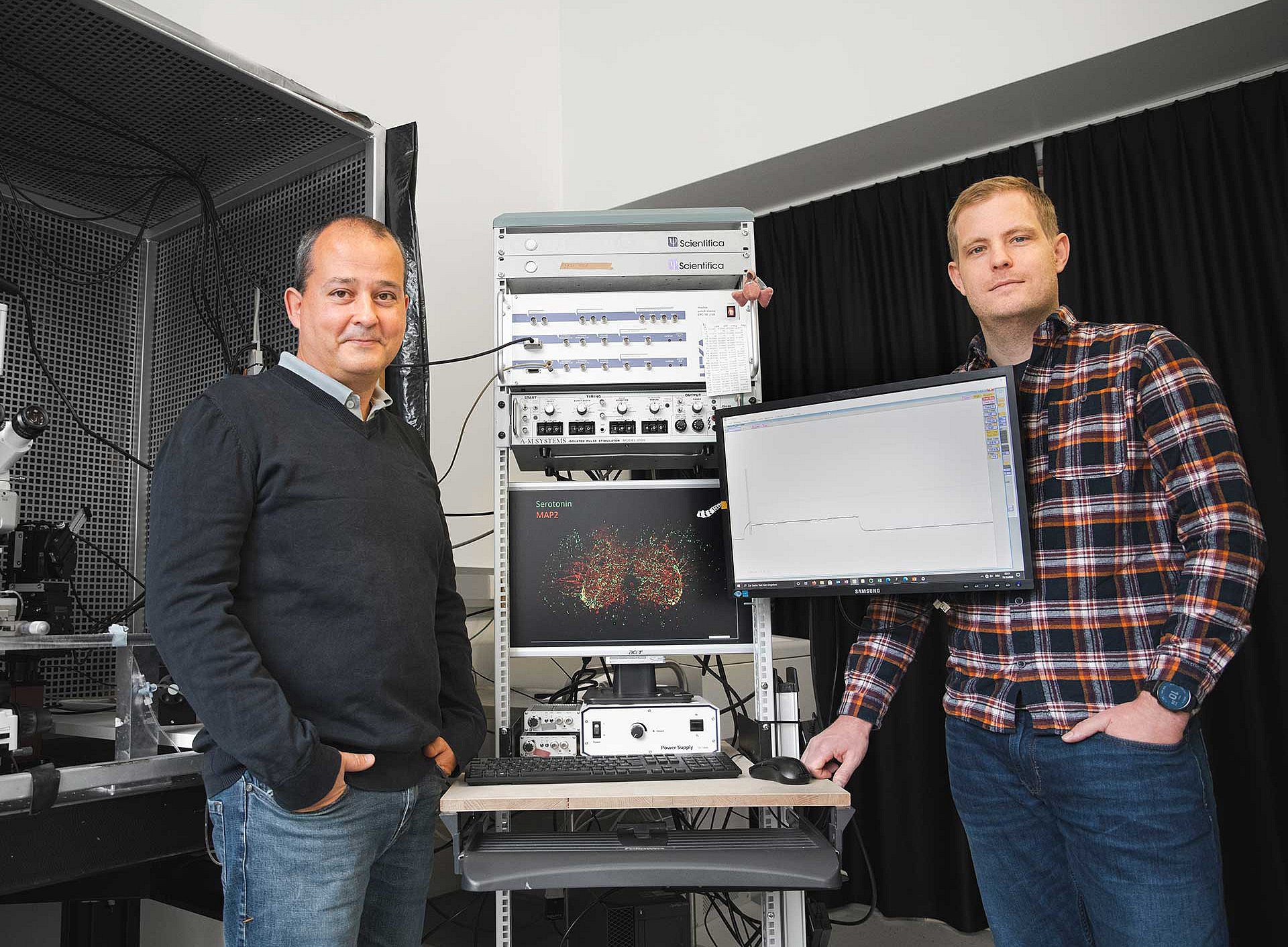Researchers were able to unravel the mystery with the help of the rattlesnake. “A rattlesnake slides forward quite slowly yet is also capable of very fast movements with its famous rattle at the end of its tail”, explain Maximilian Bothe and Boris Chagnaud from the Department of Biology at the University of Graz. The two have discovered that certain physiological differences in nerve cells can have a decisive influence on muscle control. This makes it possible to manage precisely how and when a muscle contracts. The so-called KV7 ion channels play a vital role in this regard. These channels are special proteins contained in the motor neurons of the spinal cord – the interface between the brain and the body – and determine the timing of motor activity. “They are also important for the precision of movement”, emphasizes Maximilian Bothe.
The neurobiologists have also succeeded in increasing the influence of these proteins and thus reversing movement properties from slow to fast. But the researchers are quick to stress that adding these proteins will not turn anyone into a sprinter ‒ not slow vertebrates and certainly not us humans. “The processing of movement sequences is a complex interaction of many different factors”, explains Bothe. The findings could, however, provide further insights into how new forms of movement can emerge in the animal kingdom in the course of evolution.
Maximilian Bothe and Boris Chagnaud published the results of their joint research with biologists from the Technical University of Munich and LMU Munich, the University of Veterinary Medicine Hannover and Michigan State University in Current Biology, a specialist journal published by Cell Press – Current Biology.
